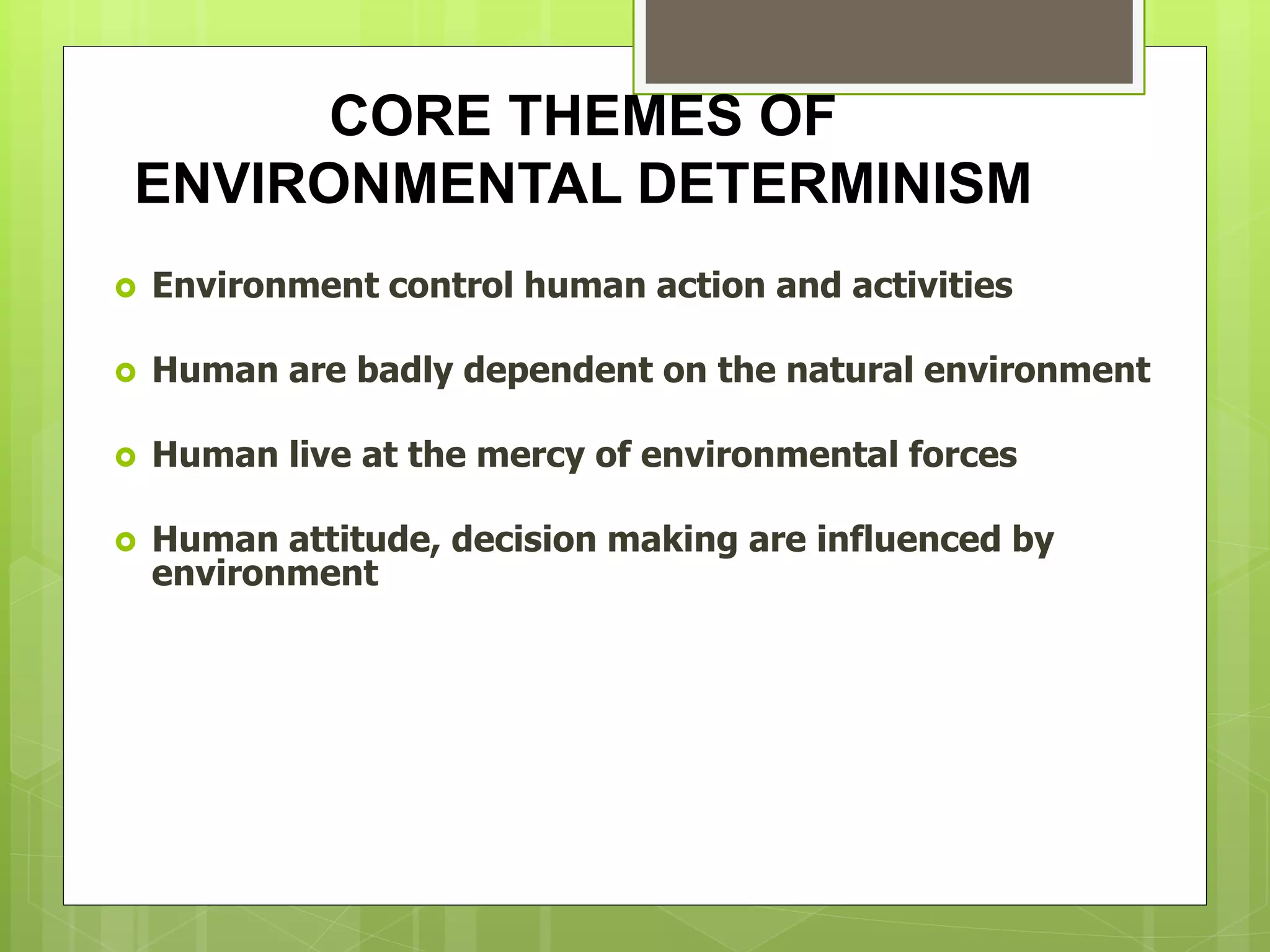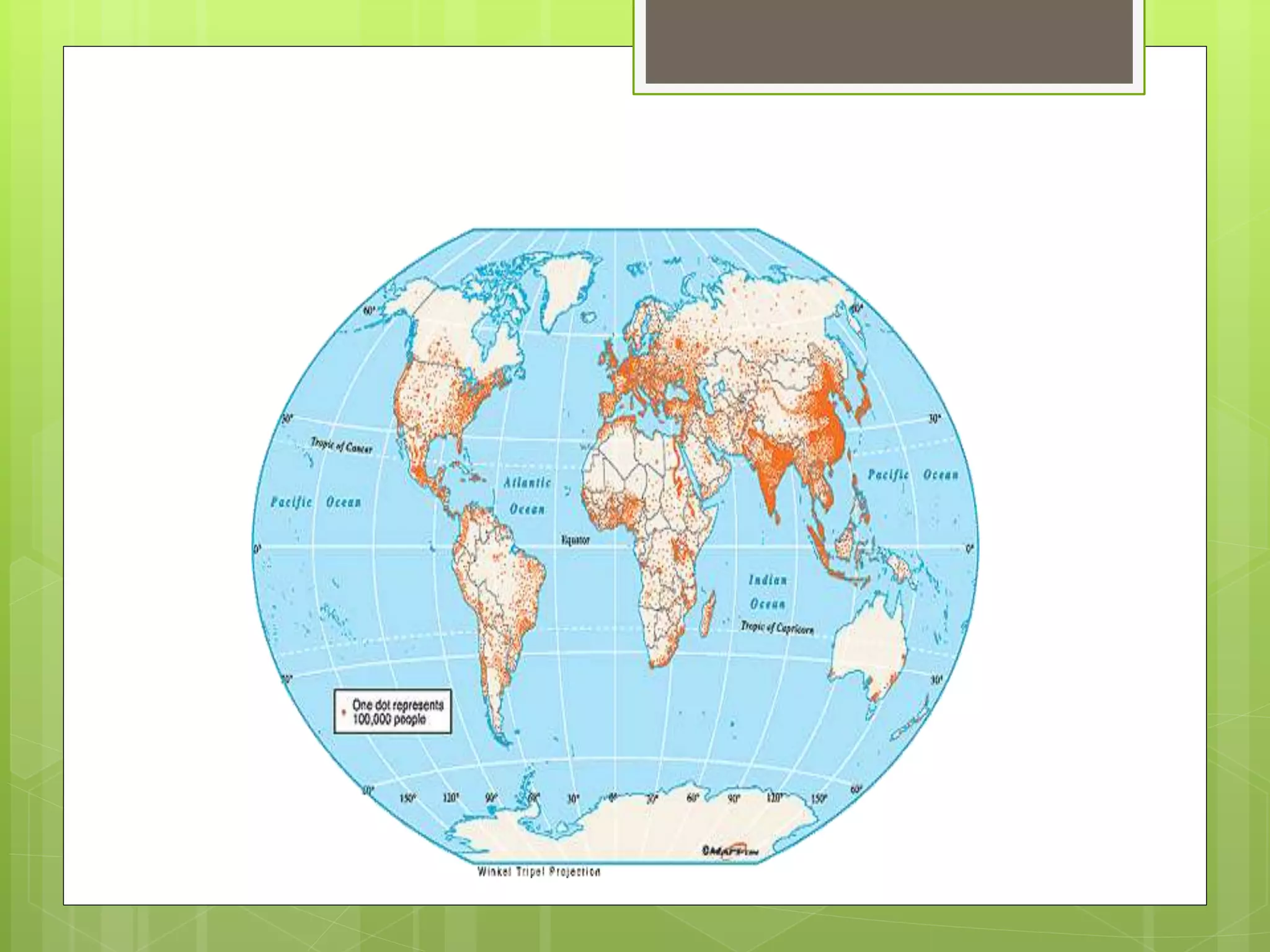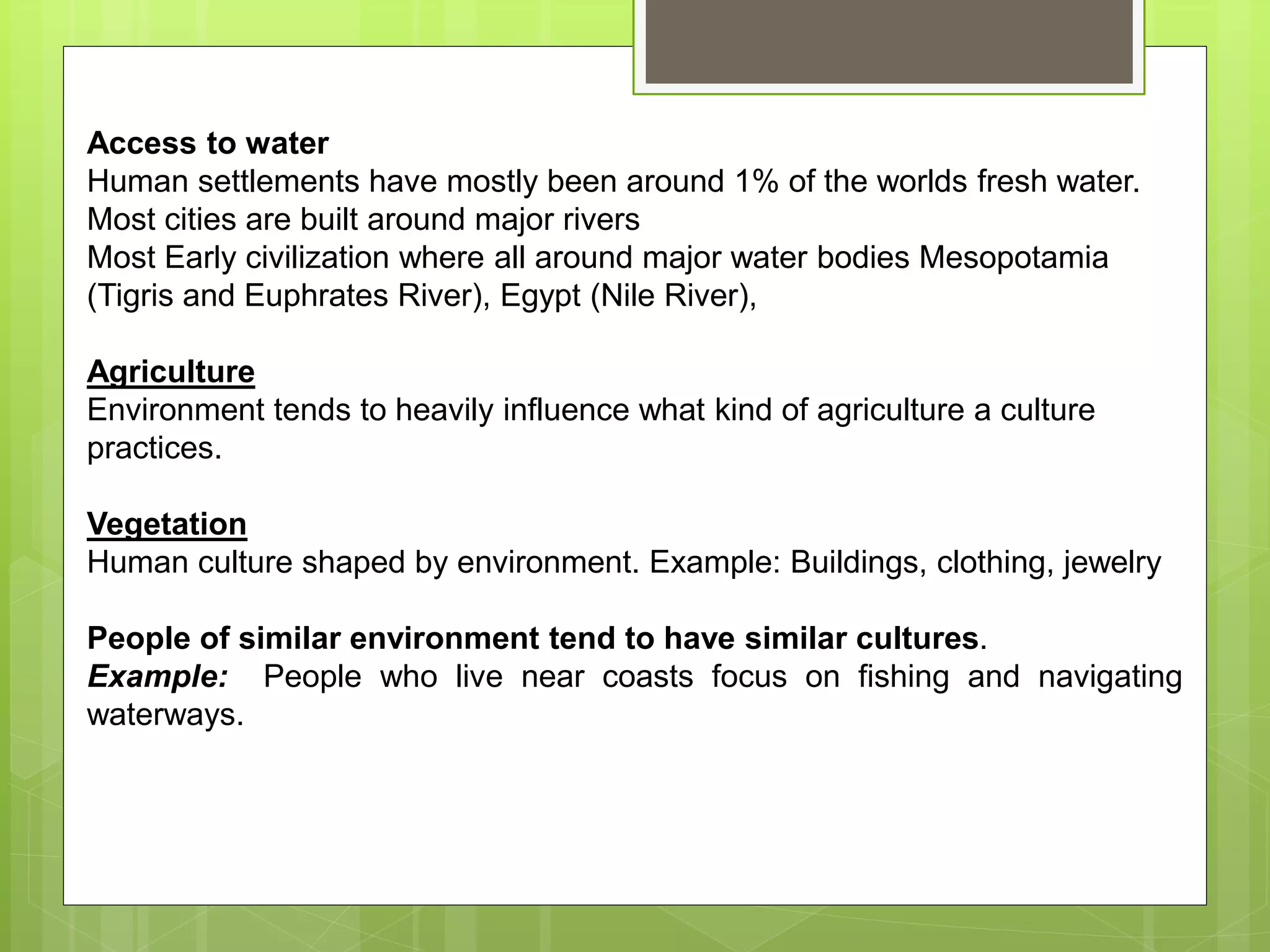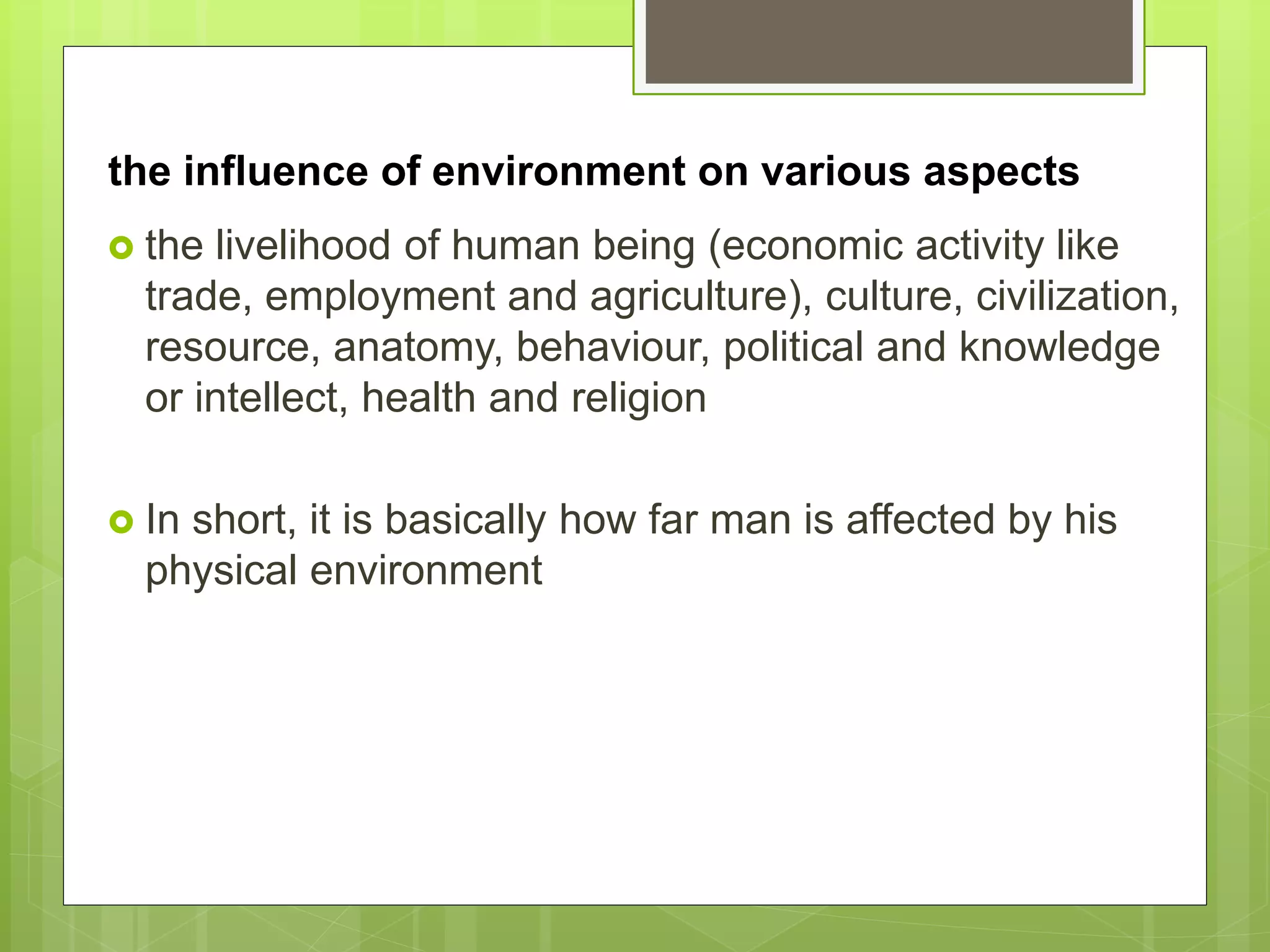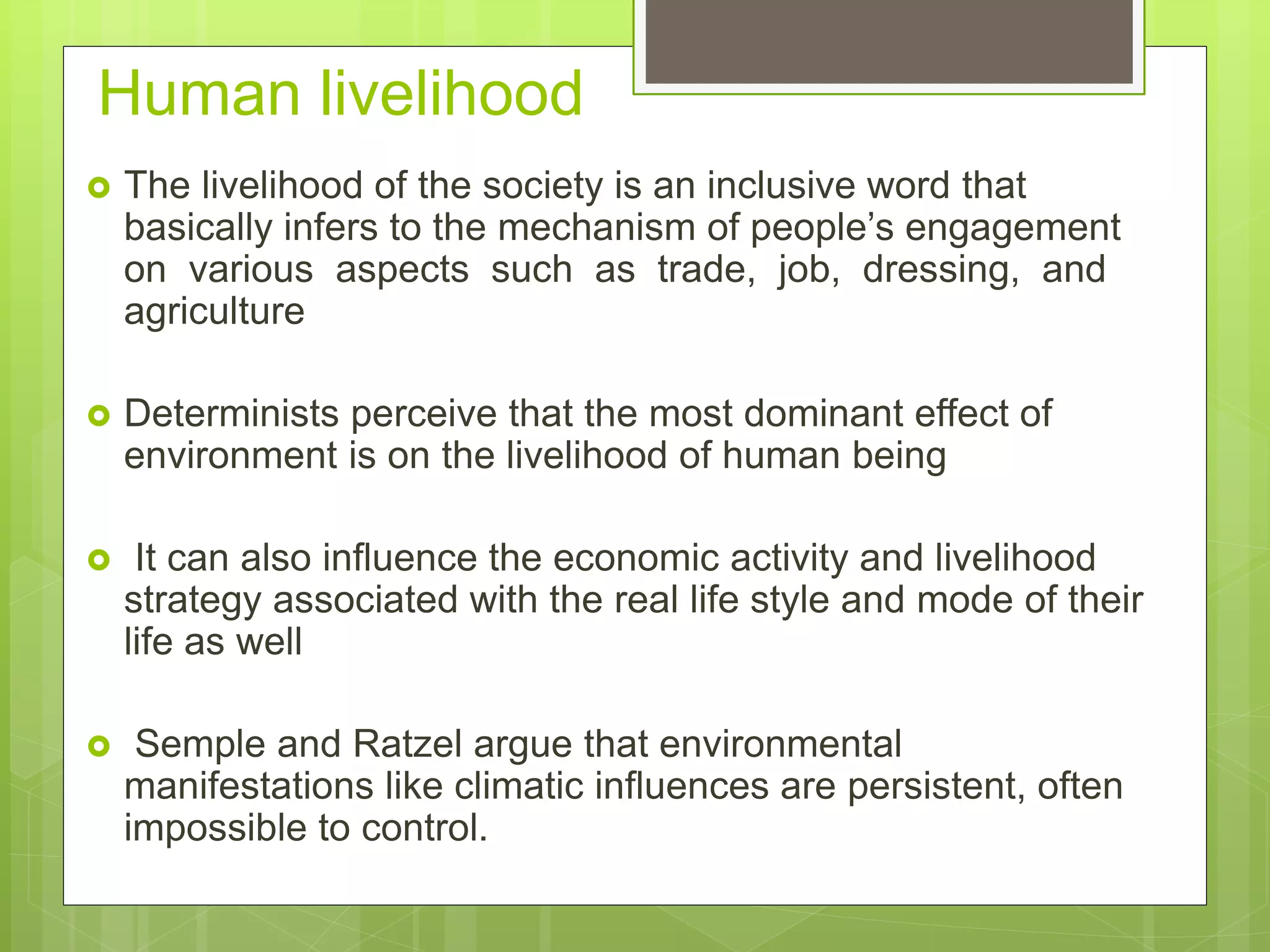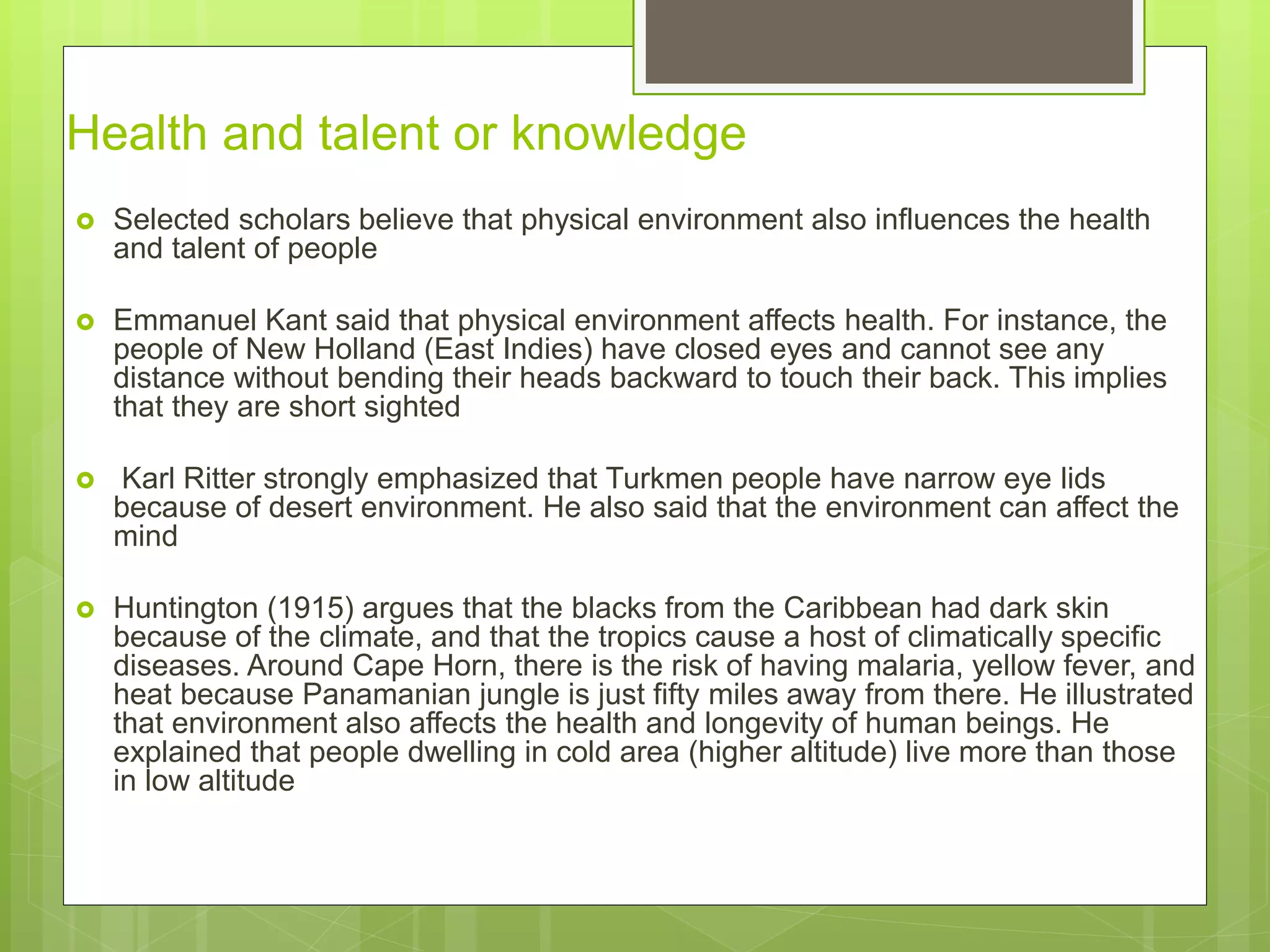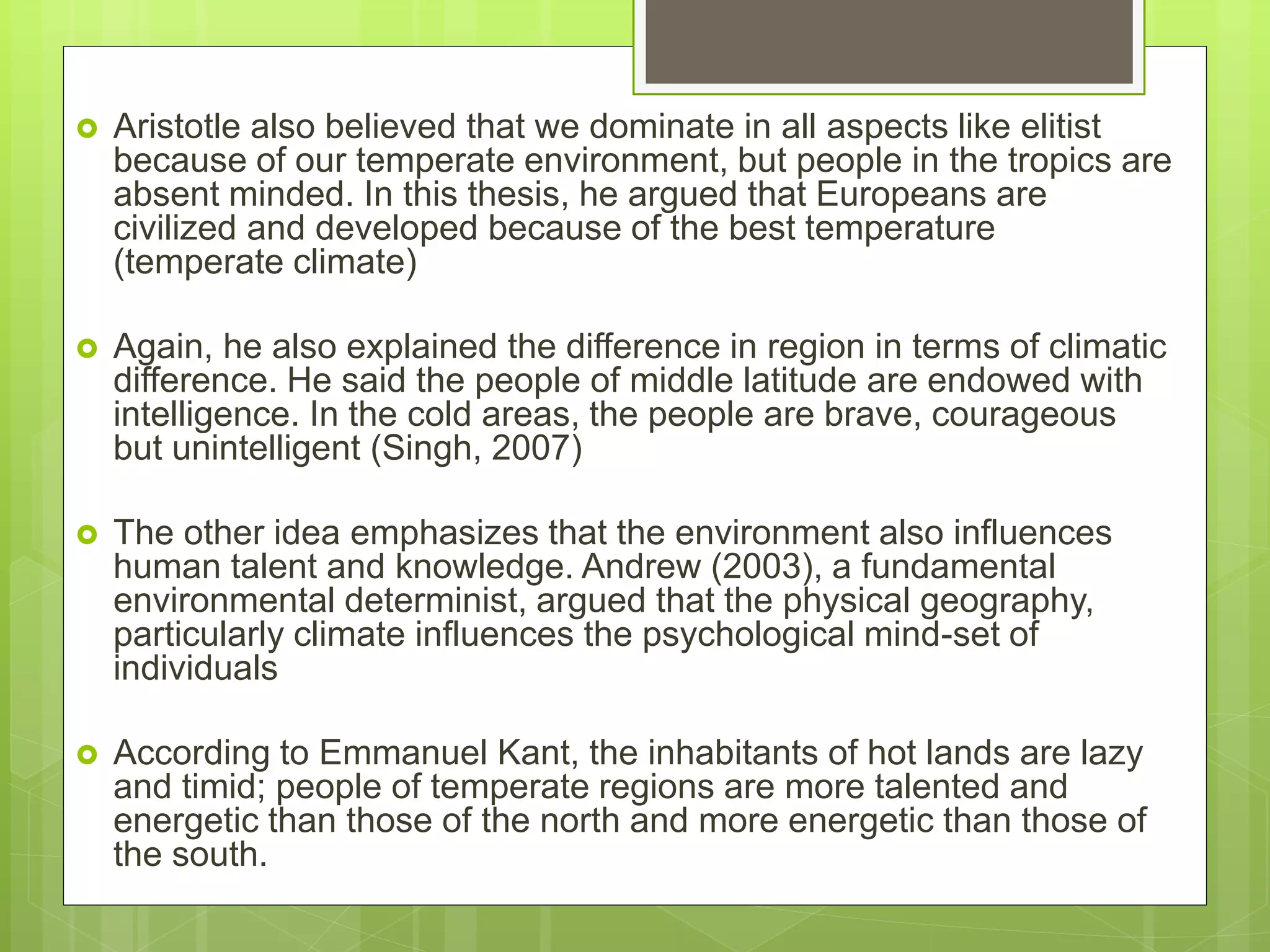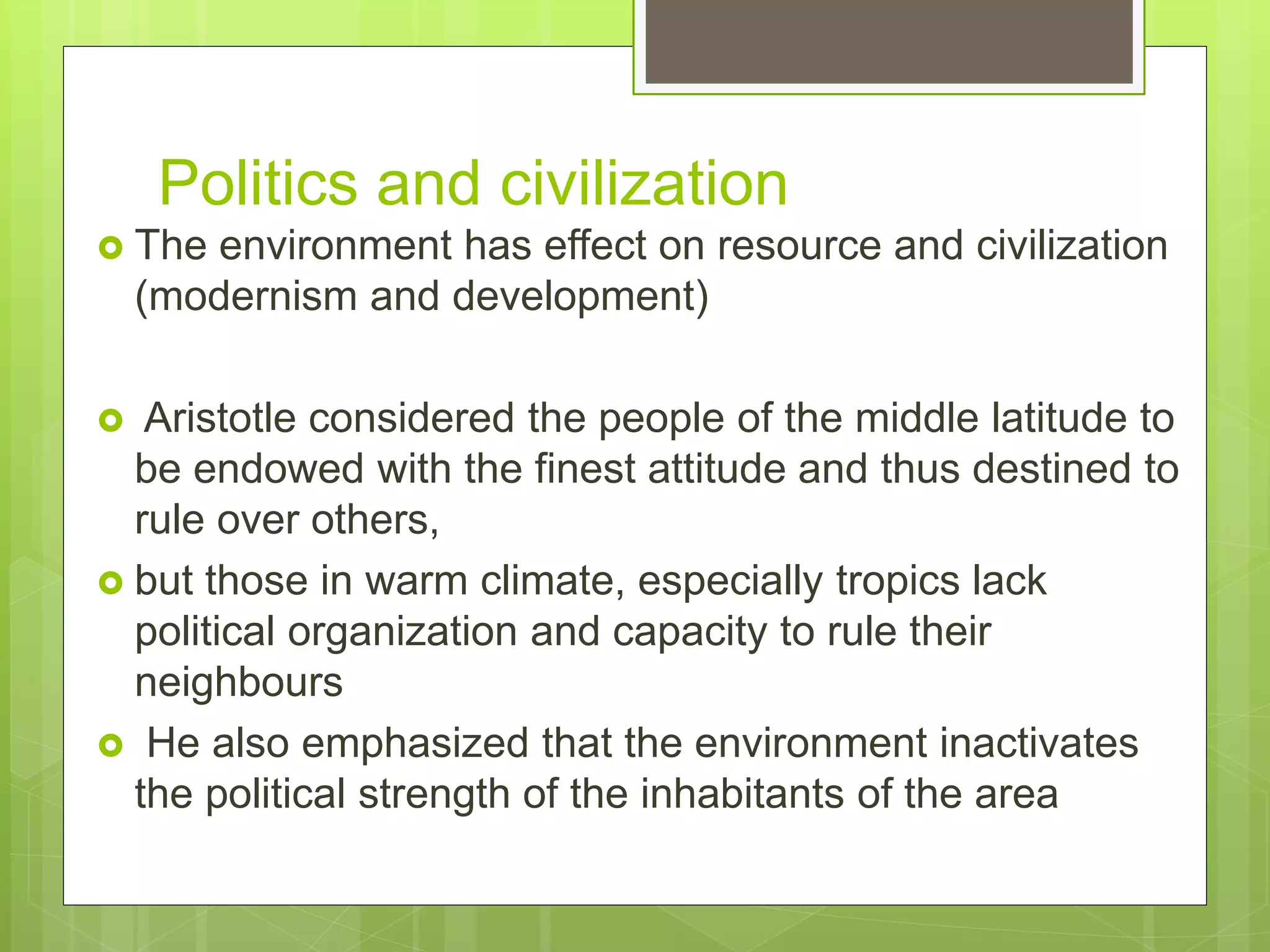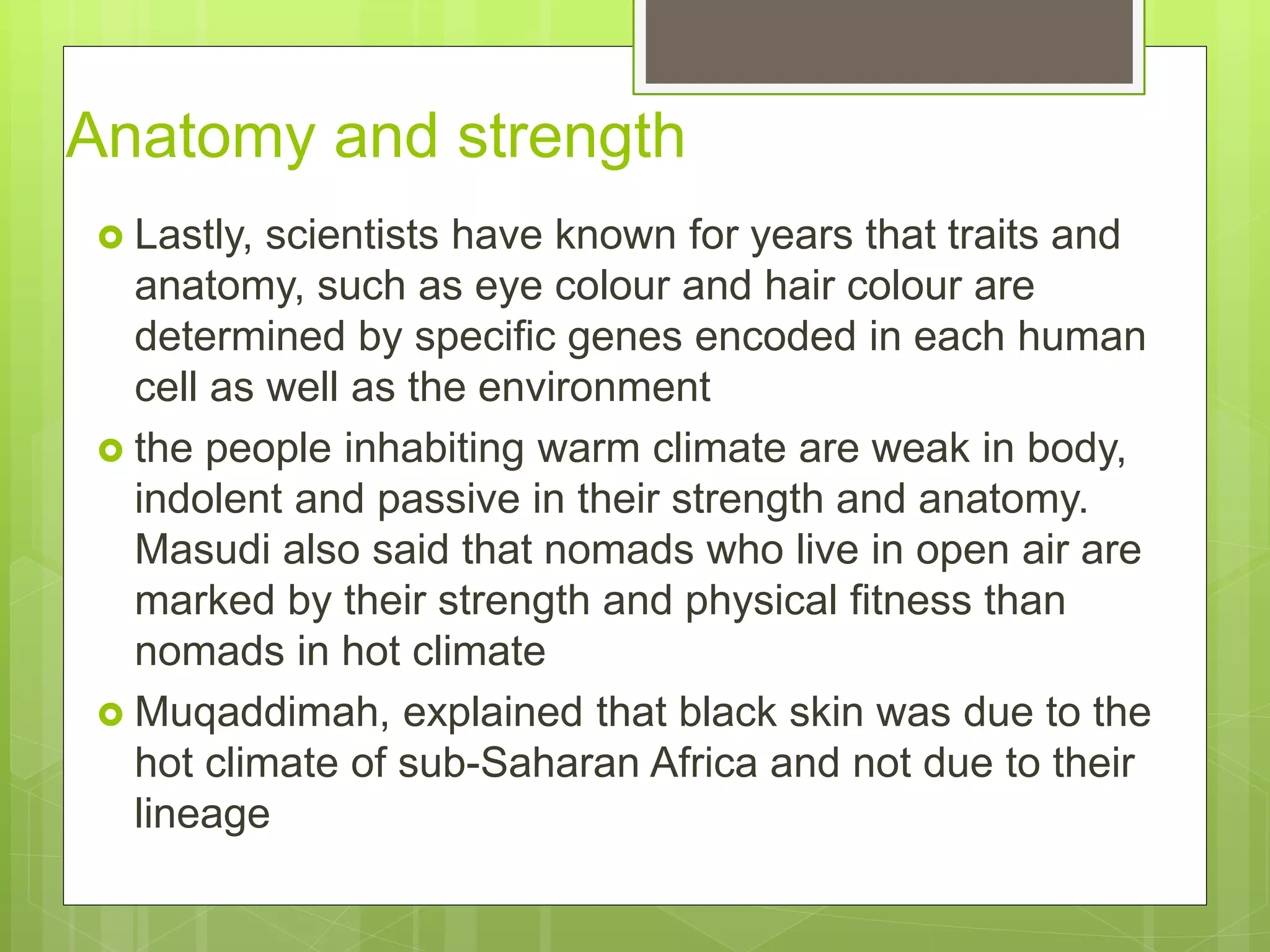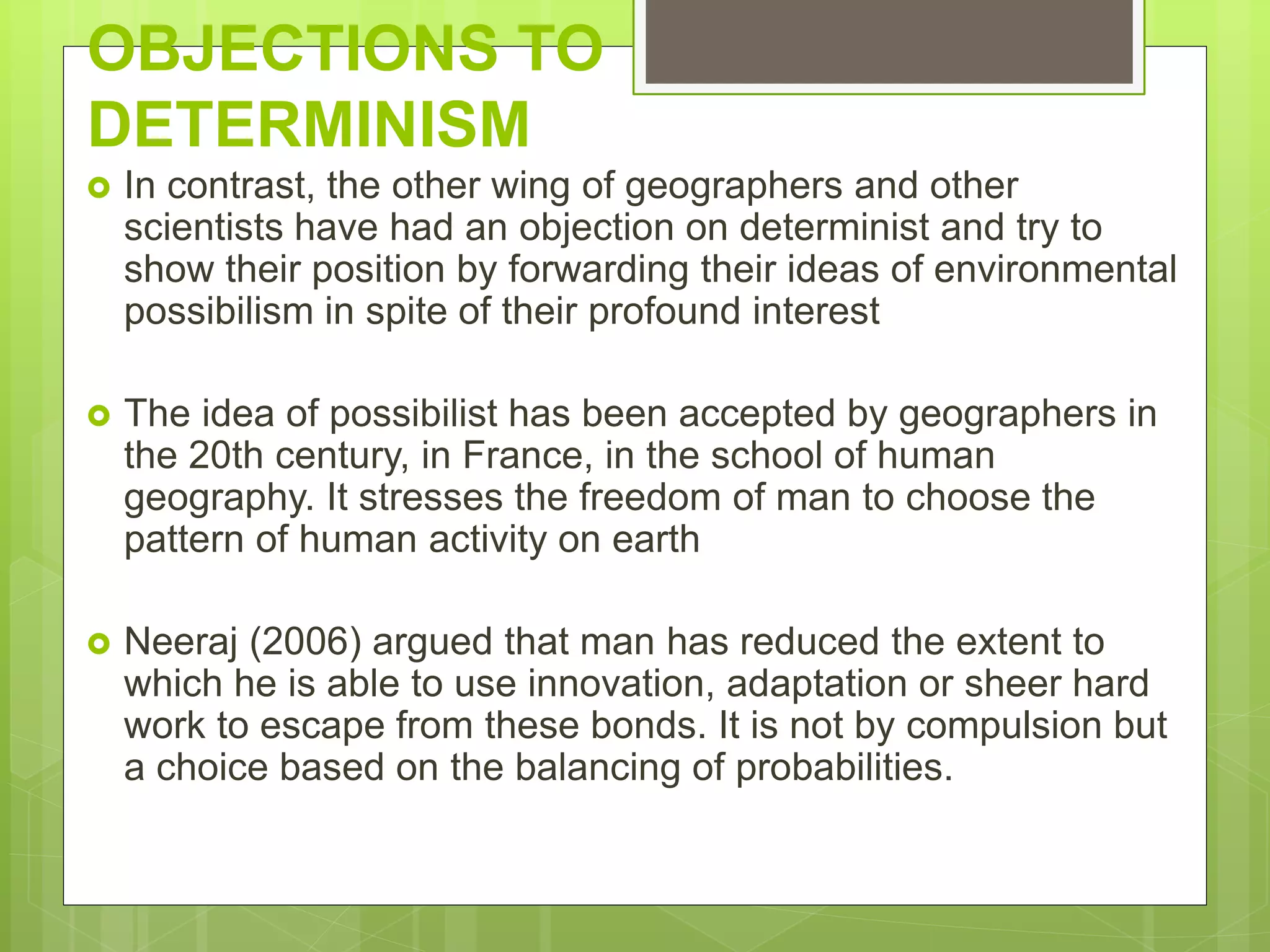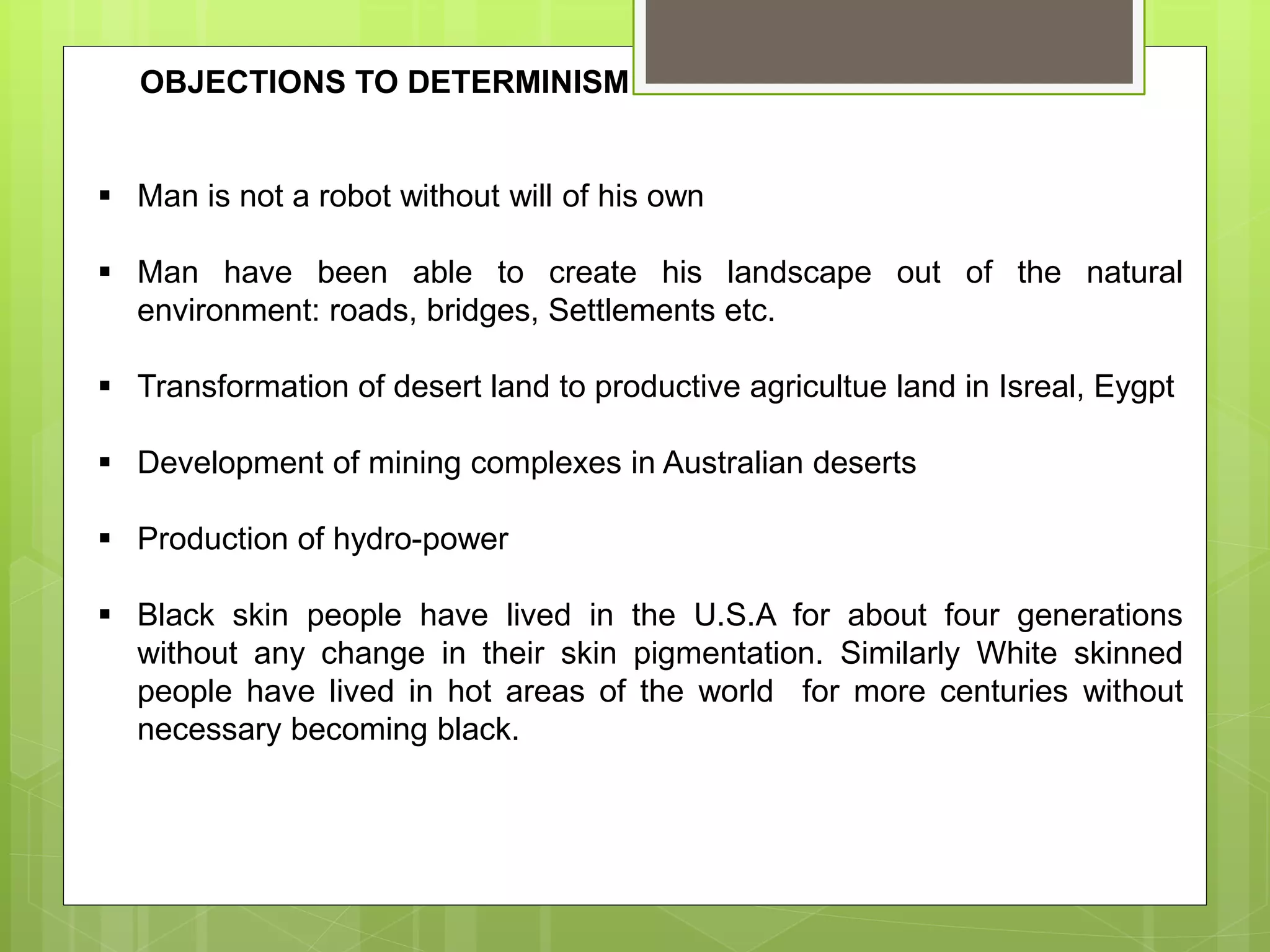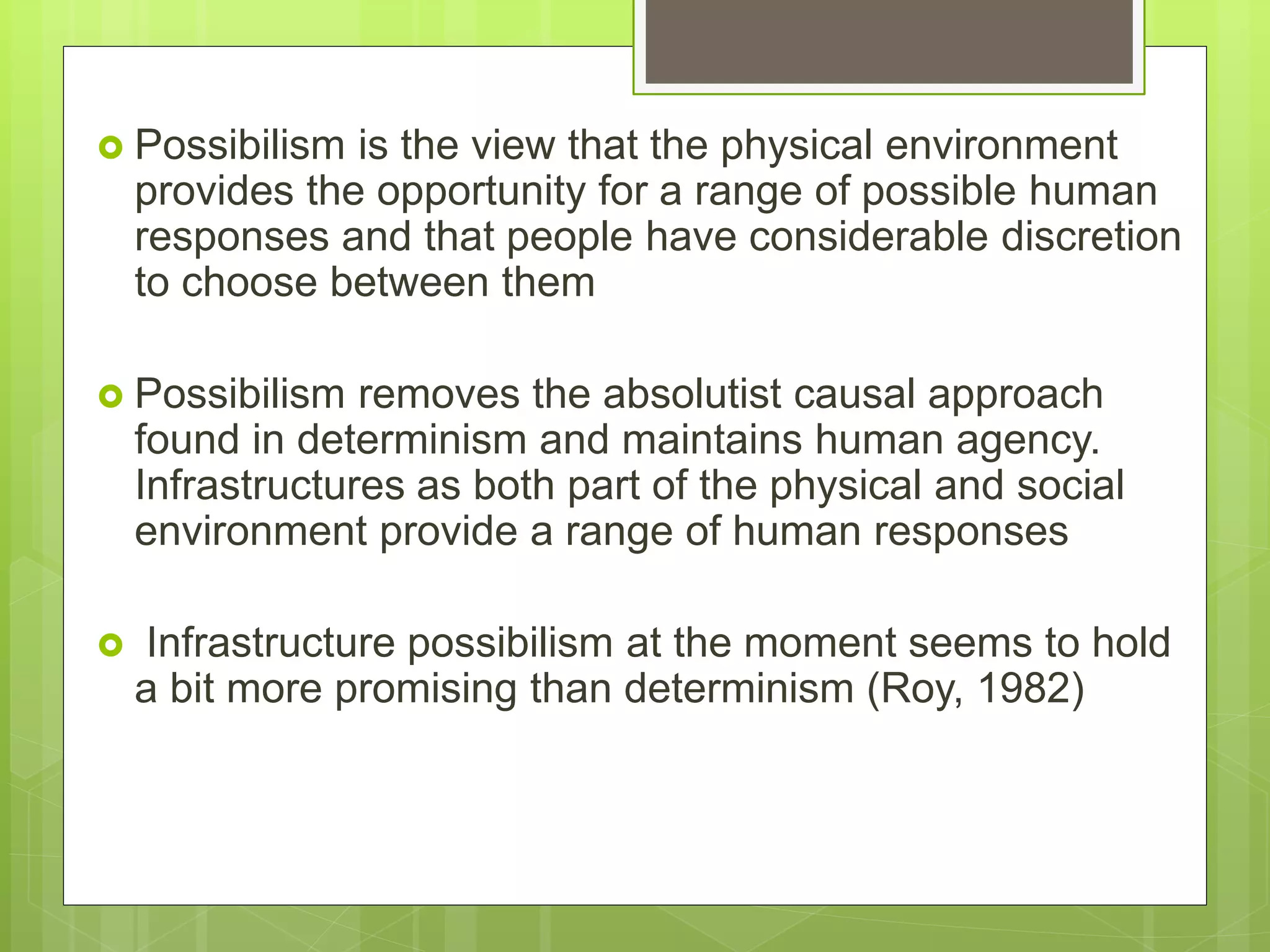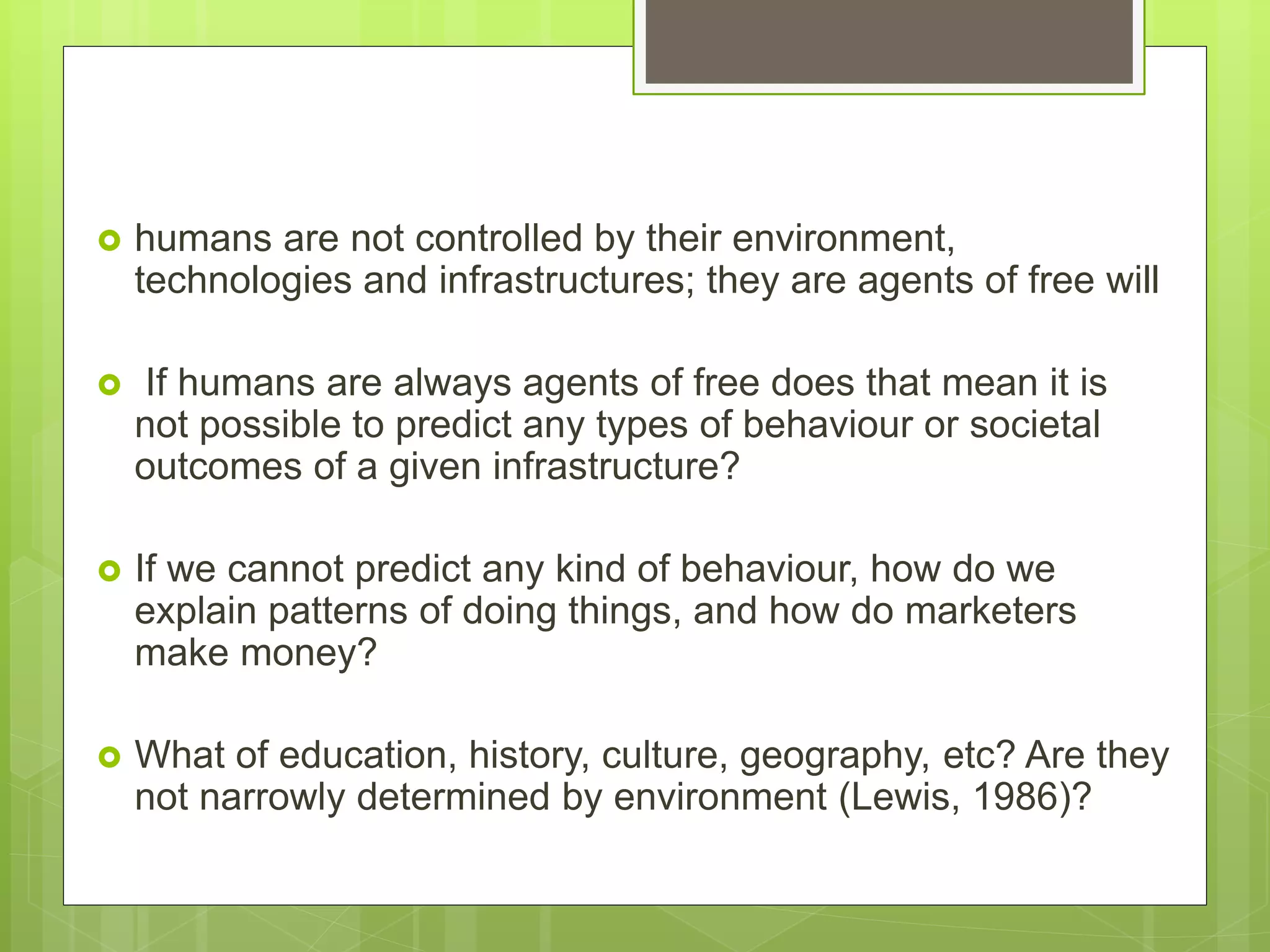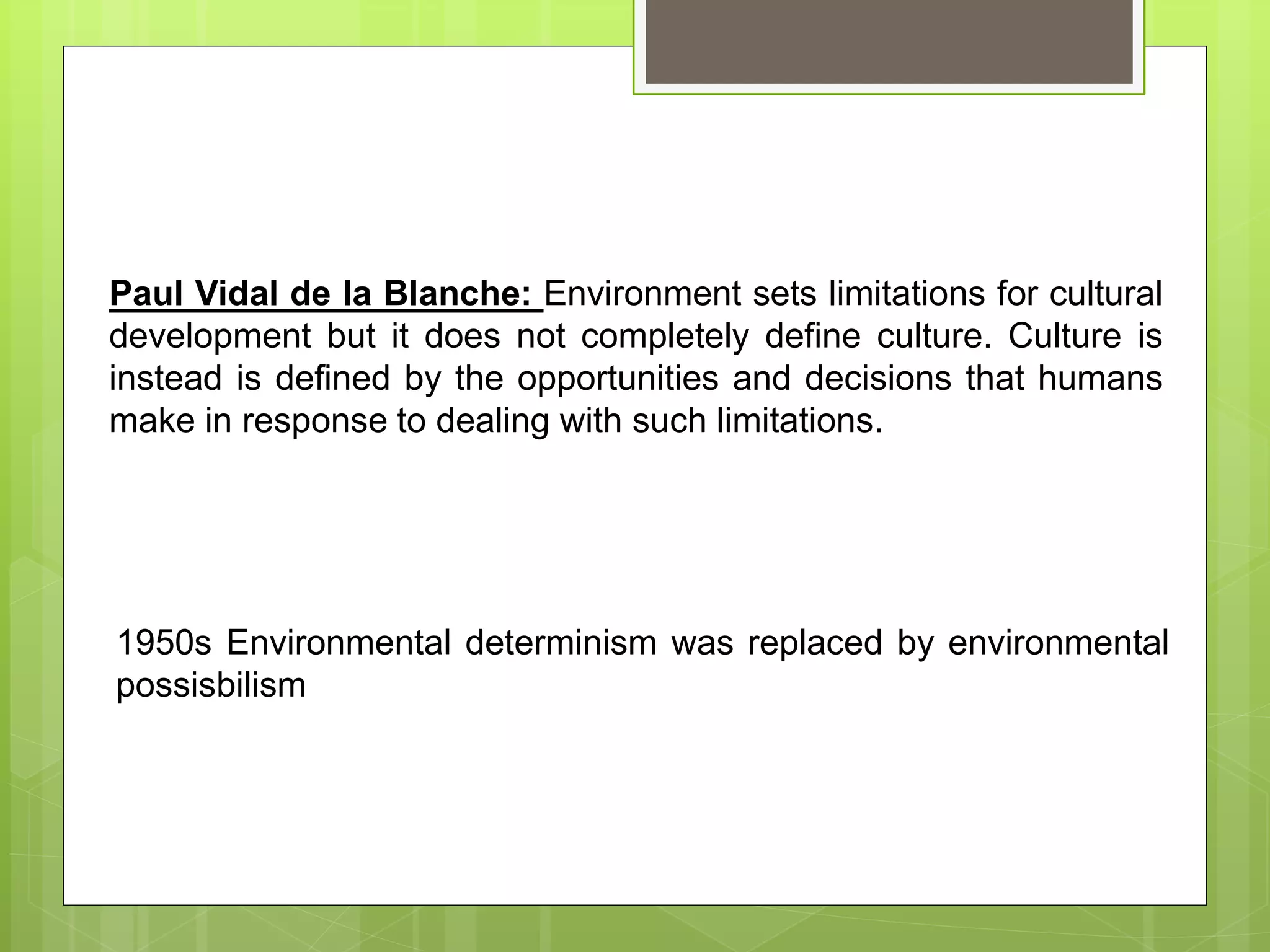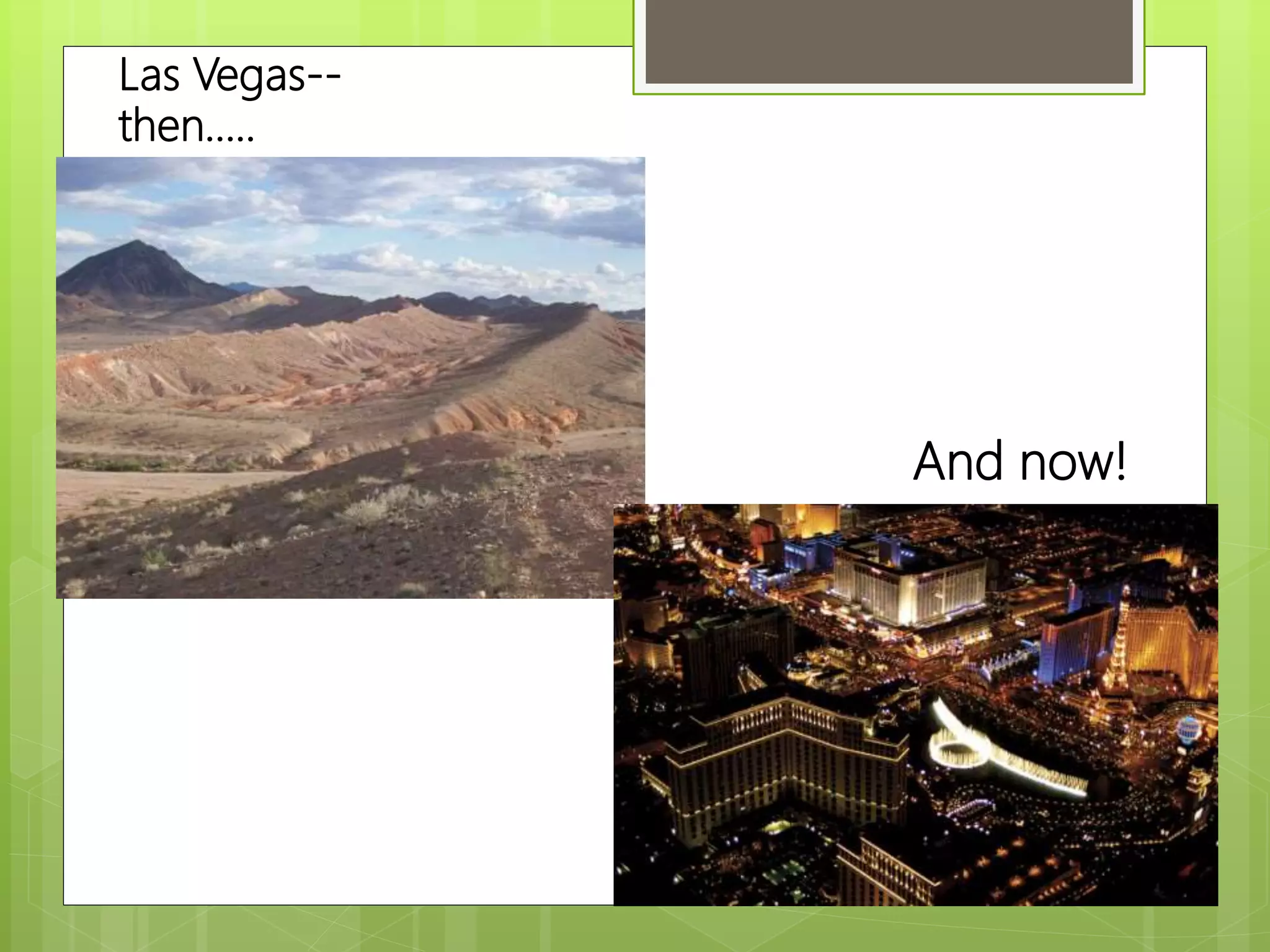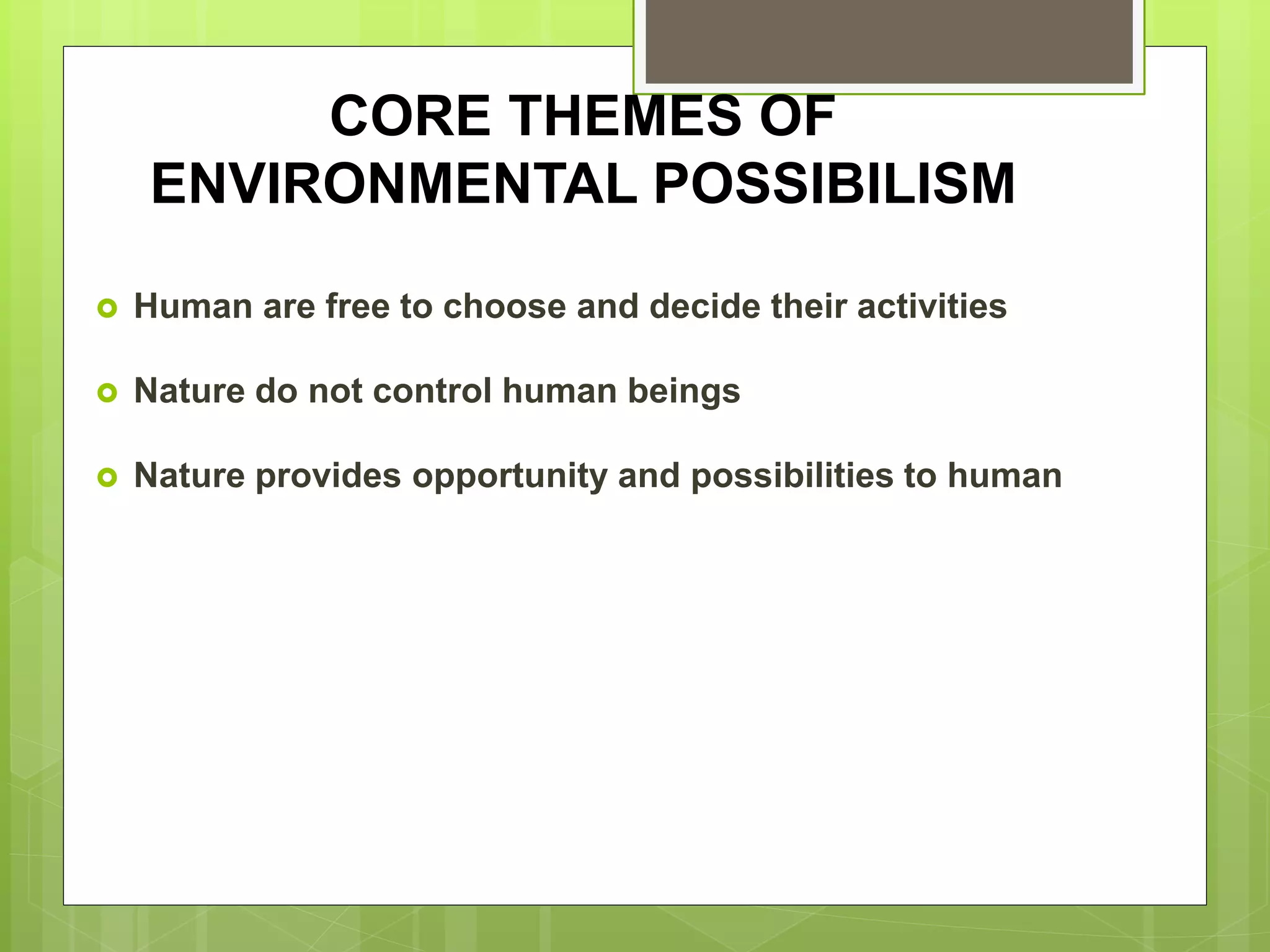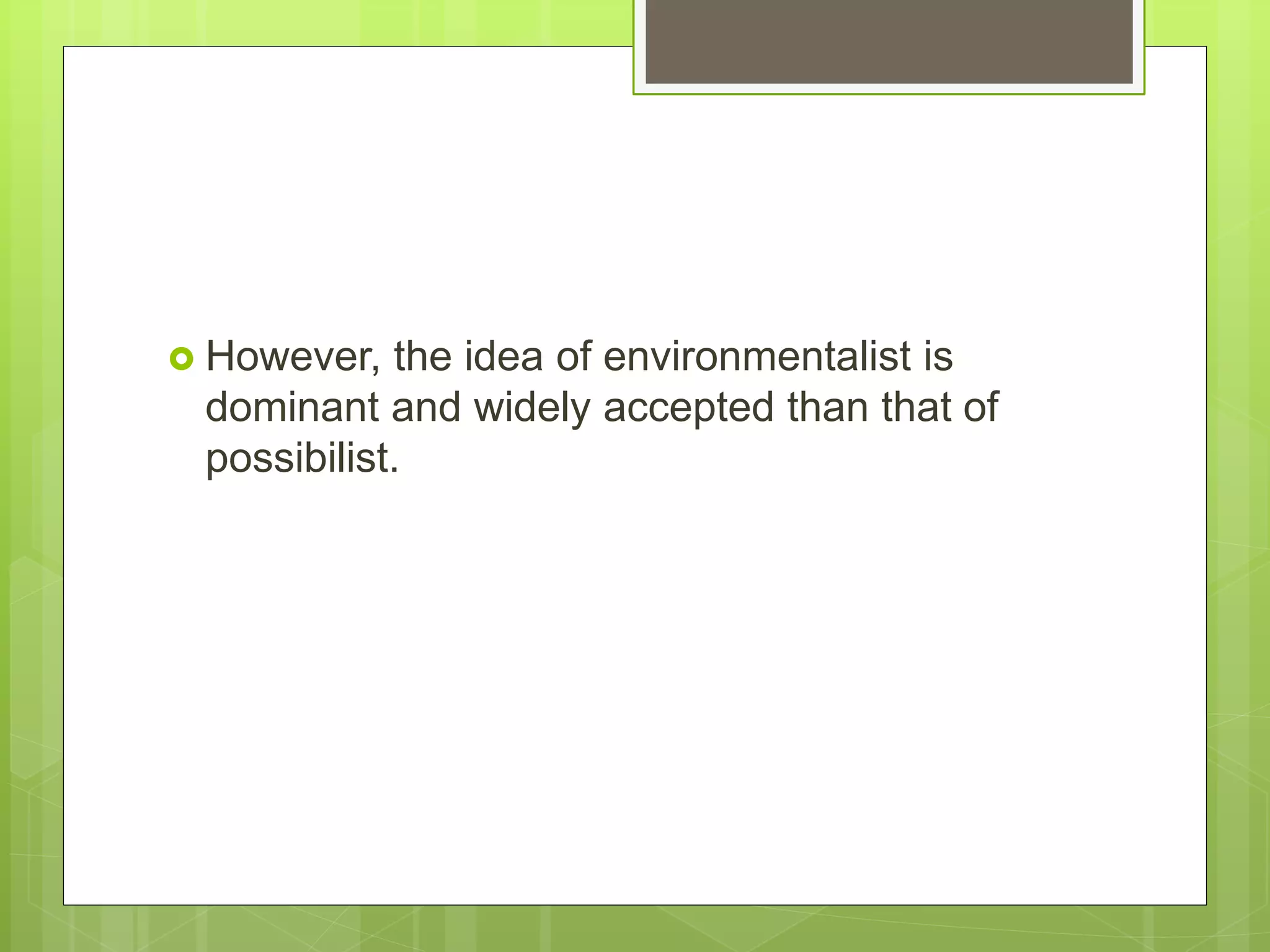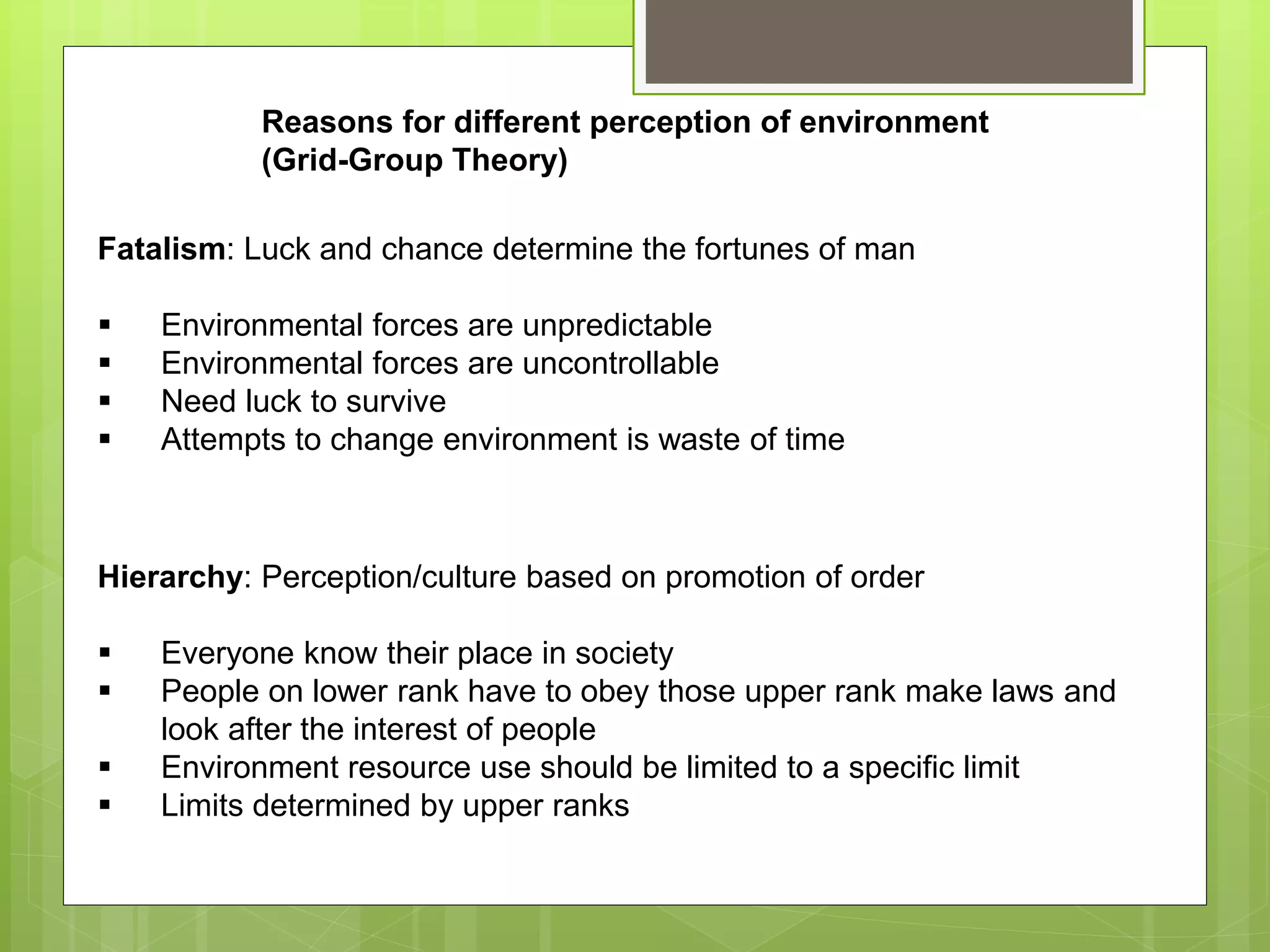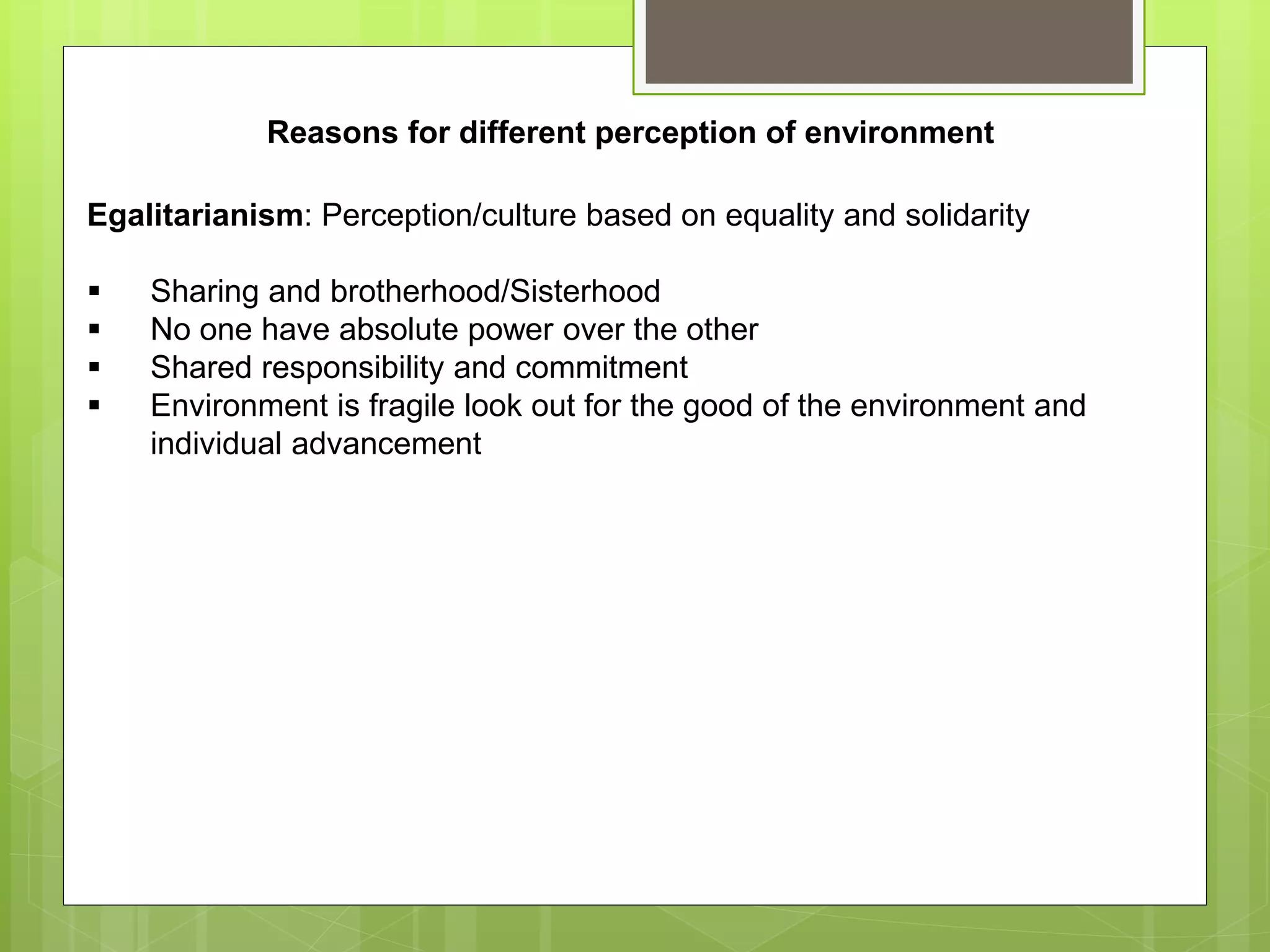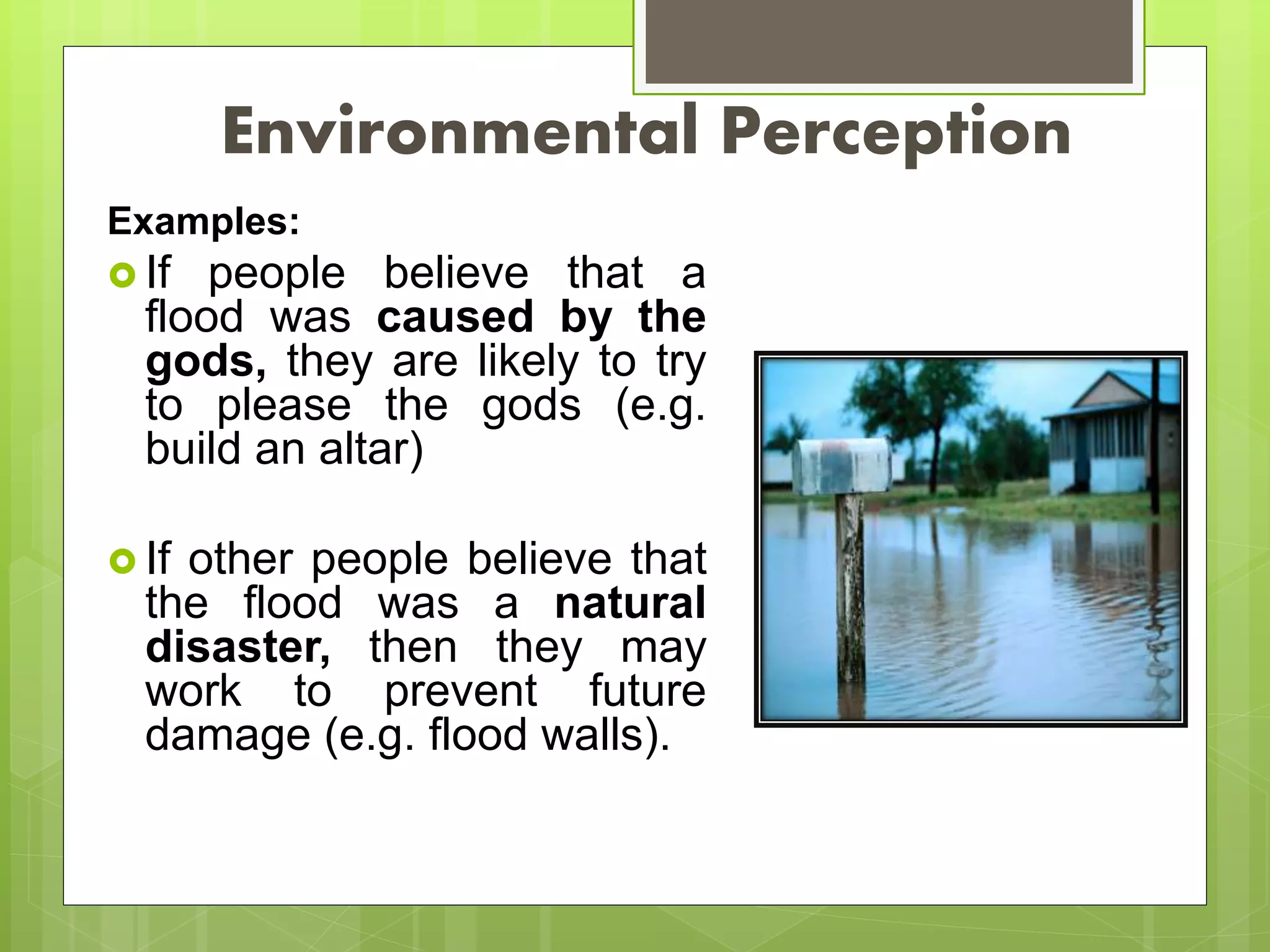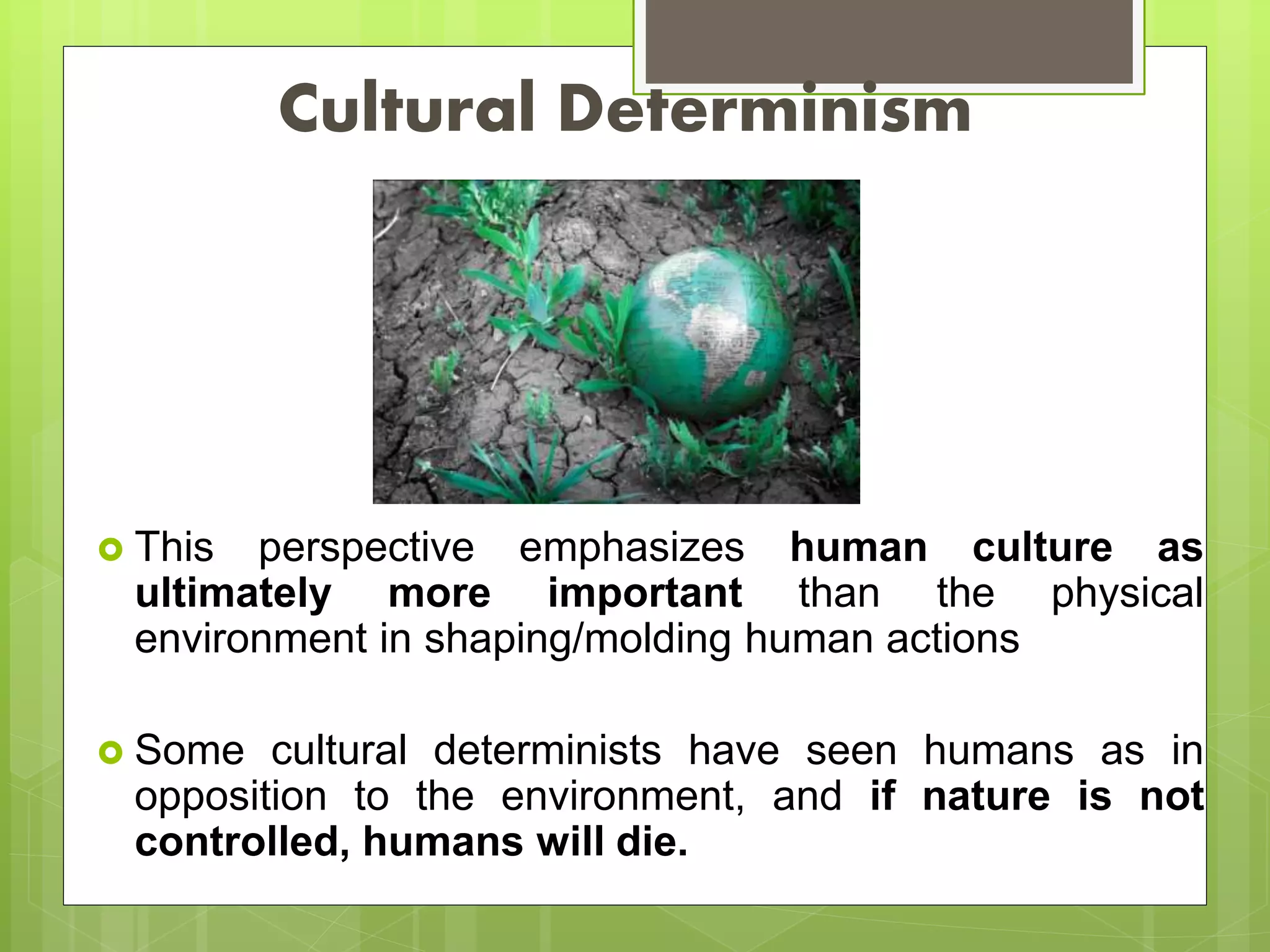Human-environment relationships involve how people use and are limited by their environment. There are three main aspects of this relationship:
1) Humans depend on the environment for survival.
2) Humans adapt to environmental conditions.
3) Humans modify their environment.
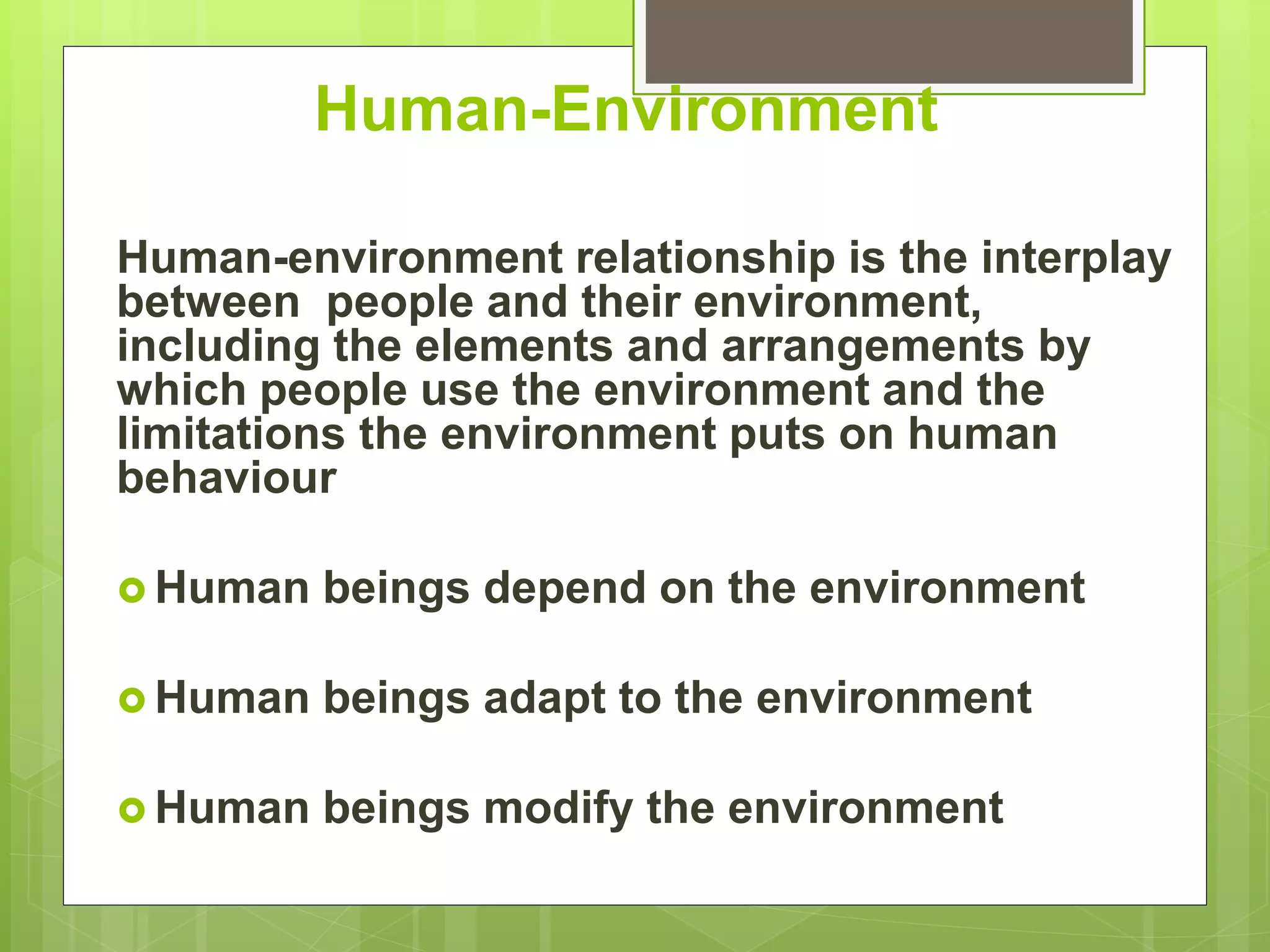
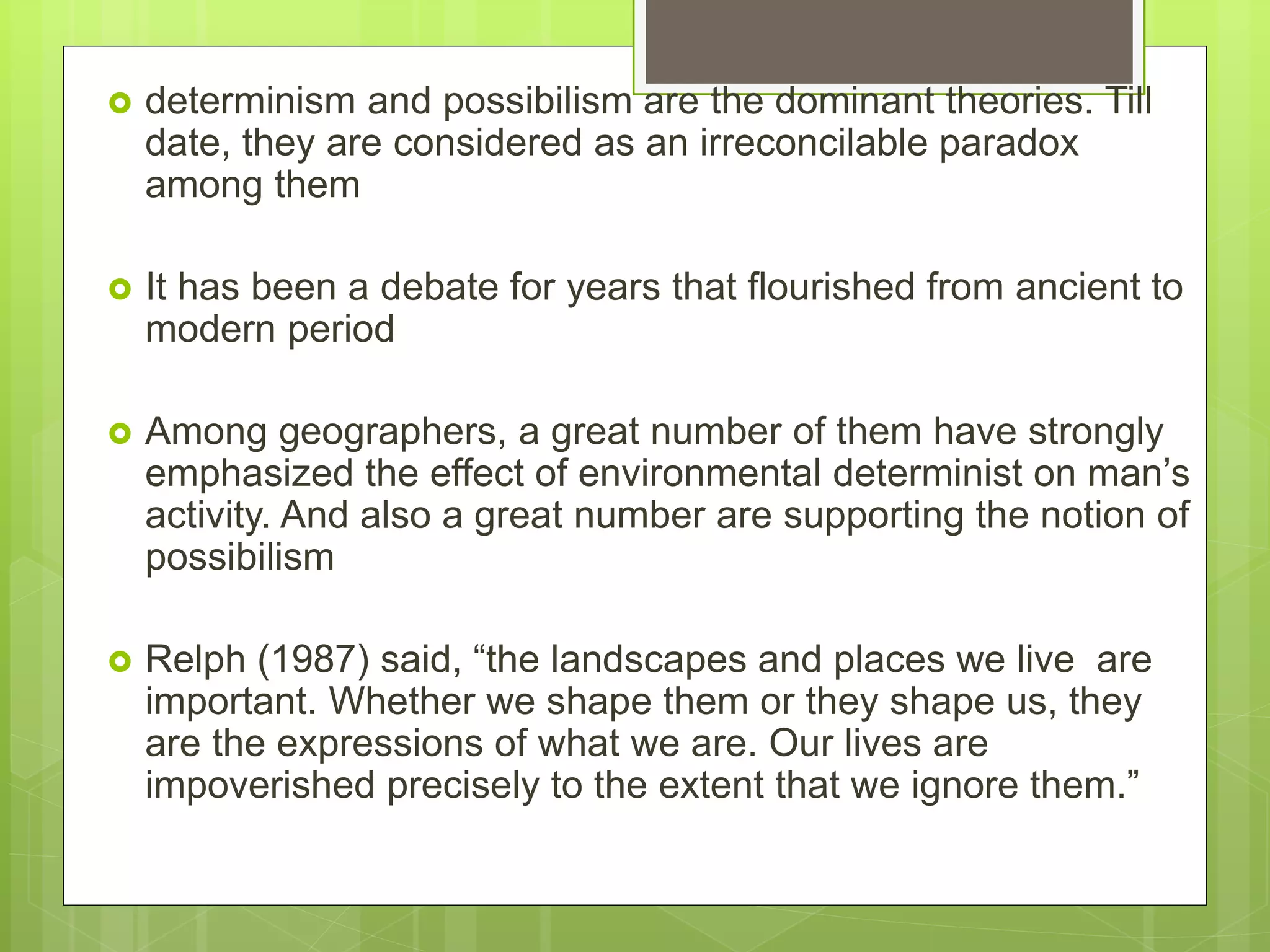




![ENVIRONMENTAL DETERMINISM
Environment Determinism Ideas:
Aristotle (350BC): People of relatively cold climates have more energy than
those of mild climate
Flavius Vegetius (Roman Writer): People of hot climate are relatively weak
and lacking in courage vitality and resistance while people of cold climate
have vigor and vitality
Baron de Montesquieu (1689-1755): The Spirit of Laws
The influence of climate on politics [was evident in ancient Greece
where the] infertility of the ground in Athens resulted in the
establishment of a popular form of government, whereas, the fertility of
soils around Sparta was reflected in the establishment of an
aristocratic government.
Friedrich Ratzel:
Natural environment was the prime mover that generated human
activities, social paradigms, as well as human adaptations and
responses.](https://image.slidesharecdn.com/environmentaldeterminismandpossibilism-190311201916/75/Environmental-determinism-and-possibilism-7-2048.jpg)

